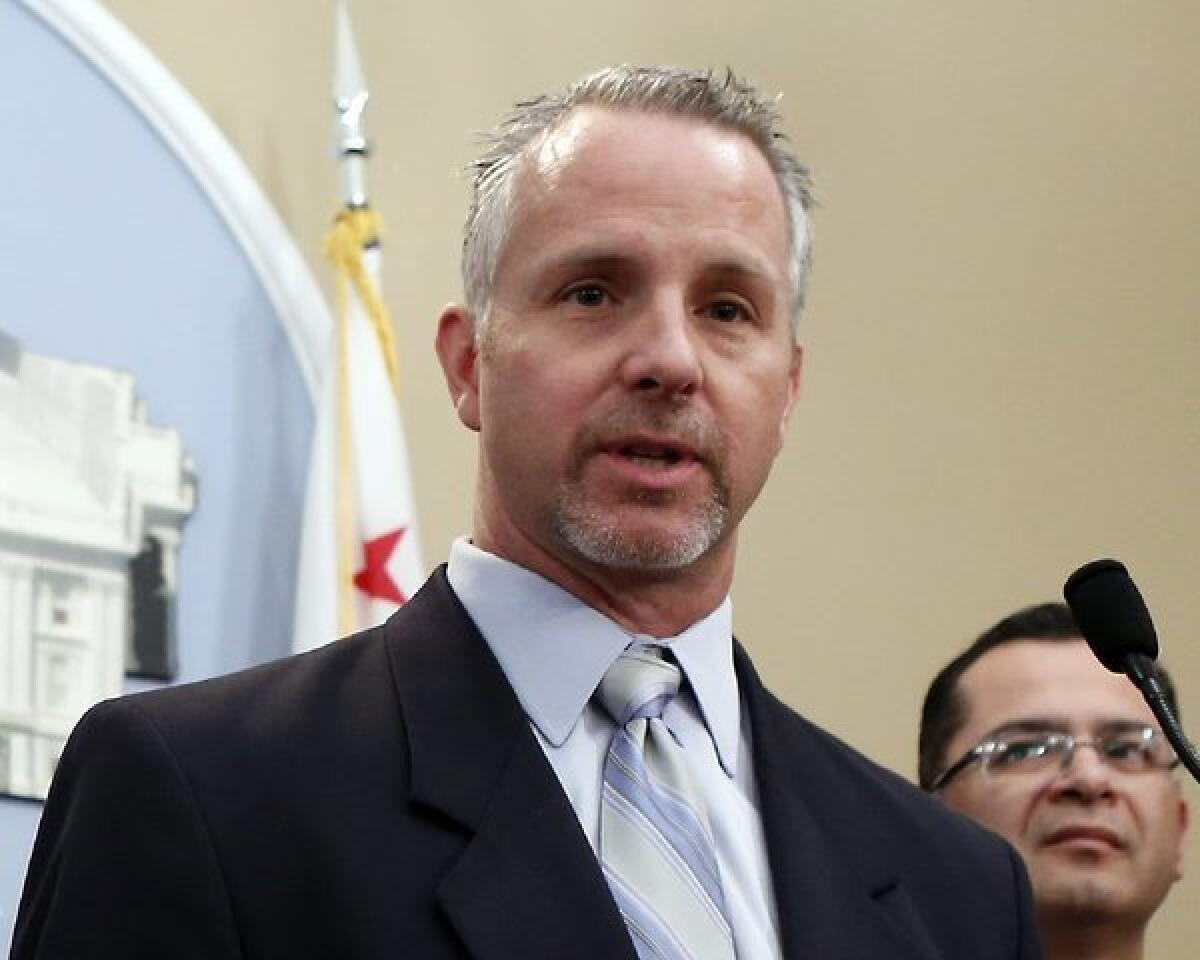‘Revenge porn’ may soon be a crime in California

In that innocent age before smartphones and laptops, perhaps the nastiest public revenge that a spurned beau could take was writing “for a good time call …” with his ex’s phone number on a men’s room wall (in the interest of gender fairness, a man’s number might also have been scrawled on a women’s room wall).
Pah -- child’s play. Social media now make it possible for an angry ex to pin that intimate, for-your-eyes-only photo of an ex-partner or ex-spouse on the world’s wall.
It’s called “revenge porn,” and the California Legislature is speeding along by hefty bipartisan margins a bill to make it a crime -- a misdemeanor with a potential for as much as a year behind bars -- to post intimate photos of someone else online without his or her permission, intending to humiliate or upset him or her.
Its sponsor, Ceres Republican Sen. Anthony Cannella, argues that “right now, law enforcement has no tools to combat revenge porn or cyber-revenge.” It is, he says, “destroying people’s lives.”
Right now, victims can sue in civil court, if they want to take the time and the trouble and pay the legal bills. And how powerful is a civil court victory in one state when your bits have been uploaded to the international online echo chamber?
The poster girl for what Cannella calls a “growing trend” is Holly Jacobs. Over the three-plus years of a relationship, she sent her boyfriend some intimate photos -- and right here is the time to point out that Jacobs has anticipated and shut down anyone who’d say that it’s her fault for taking those pictures in the first place. (Just as people may insultingly and absurdly blame a rape victim for “asking for it.”)
The vulnerability of social media is a different discussion, as is the wisdom of hitting the “send” button on anything so personal; that will be debated until the cows come home, flashing their udders. Anthony Weiner has never suggested the social media made him do it. Last year, an actress on HBO’s “The Newsroom” accidentally tweeted a topless picture of herself (and ABC News misspelled the word as “accidently” -- accidentally, one hopes.)
Art imitates life: This season on “The Newsroom,” a character played by actress Olivia Munn finds herself the target of revenge porn.
Ever since humans mastered the art of drawing in the dirt with a stick, each new iteration of technology has been put to pornographic purposes. But revenge porn belongs on the spectrum of stalking and harassment, which Cannella’s bill seeks to recognize.
Holly Jacobs found that a month after she and her boyfriend broke up, her naked picture had been posted on her Facebook profile. (Her ex-boyfriend contends the picture got out because his computer was hacked.) It went viciously viral.
Less than a year later, Jacobs’ photo was on some 200 websites, as were her name, email address and place of business. She tried to get the photos removed, she changed her phone number, she changed her name, she quit her job, she thought about suicide.
And she started a website, with a petition drive, to do just what the name says.
It’s a law of political physics: For every piece of legislation, there’s an equal and opposite lawsuit. Well, not always, but there may be with this bill. It’s why the ACLU has opposed it. It wades into the murky areas of the Internet and image ownership. As with an actual paper-and-ink letter, does the recipient of the photo own the actual physical picture but not the “content,” and therefore the right to reproduce it anywhere? Is the owner of the photo the person who took it or the person who appears in the photo? What if it’s one and the same, a “selfie”?
Publishing law may provide a template for cyber-publishing, if such crude, vengeful actions can be regarded in any planetary system as “publishing.”
The potential California law criminalizing revenge porn might also give the victim the legal tools for demanding that those pictures be taken down, but some national and international conventions have to accompany legislation like Cannella’s or they will just be paper tigers, no more effective at undoing the damage than civil suits may be now.
I don’t see any reference to whether the law would also classify the lawbreakers as sex offenders, and the absence makes me believe it does not.
Certainly being classified as a sex offender for revenge porn would be one hefty deterrent, but would it be ineffective overkill? California laws, as the Wall Street Journal has pointed out, create so many registered sex offenders -- like a teenage boy who had sex with his underage teenage girlfriend -- that it’s made it harder to track the violent and dangerous criminals who may actually be likelier to commit more sex crimes.
This is just a note of caution. By not designating revenge porn posters as sex offenders, such a bill is clearly focused on its goal -- to keep these photos off the Internet -- and be likelier to be signed into law, both here and eventually across the country.
ALSO:
Opinion poetry by Times readers
Follow Patt Morrison on Twitter @pattmlatimes
More to Read
A cure for the common opinion
Get thought-provoking perspectives with our weekly newsletter.
You may occasionally receive promotional content from the Los Angeles Times.







